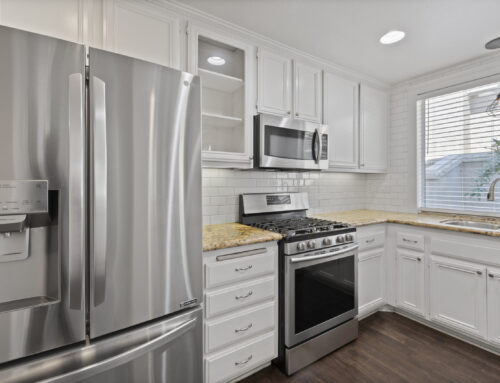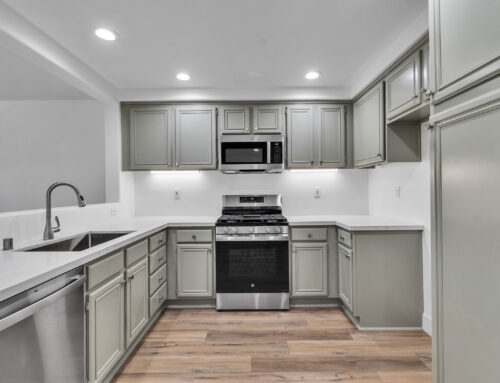Let’s face it: For most people, becoming a homeowner isn’t possible without a loan. The catch is that you pay back that loan plus interest—and those measly few percentage points can really add up. Let’s say you borrow $400,000 over 30 years with an interest rate of 5%. By the time your loan matures, you’ll have paid a total of $373,023 in interest—nearly the same amount as what you’re borrowing!
The good news? Interest rates are at record lows right now, potentially saving you hundreds of thousands of dollars—but there are plenty of ways to nudge the rates even lower. Here are crucial questions to ask your lender to ensure the bargain basement rate.
‘What kind of loan would work best for my circumstances?’
Loans are not one-size-fits-all.
“The loan you choose should be tailored to your individual financial circumstances,” says Casey Fleming, author of “The Loan Guide: How to Get the Best Possible Mortgage.”
Generally speaking, there are two types: fixed-rate and adjustable-rate mortgages. With a fixed-rate mortgage, your interest rate remains the same throughout the term of the loan, whereas an adjustable-rate mortgage is fixed for an initial period—say five or 10 years—but then will start to adjust regularly based on market indexes. The benefit of an ARM is that your initial interest rate is usually lower than with a fixed-rate mortgage. The downside is that after that initial period, those interest rates can end up much higher. Still, an ARM can make sense, and save you a lot on interest, in certain circumstances. For instance, if you plan to live in the home for less than five years, you may escape the adjustments altogether before you sell.
‘How much can I lower my interest rate by paying points?’
“Think of points as a prepaid finance charge to reduce your interest rate,” says Fleming.
For instance, say you bought a 30-year, fixed-rate, $400,000 loan at a rate of 5%, for which you’d pay $2,147 per month. Paying one point upfront would lower that rate by a 0.25 percentage point to 4.75%; paying two points would nudge that down to 4.5%. That would lower your monthly payment to $2,027. Which all sounds great, but keep in mind you have to pay for those points upfront—about $8,000 total.
So, it makes sense to pay for points only if you live there long enough to recoup the costs with lower interest. In this example, you’d have to remain in your home for at least six years before you break even and start reaping the benefits.
‘Am I qualified for special loans that can lower my interest rate?’
Certain circumstances can lower your interest rate as well as offer other money-saving perks. For example, VA loans are available to those who’ve served in the military, allowing them to buy homes with no down payment and often lower interest rates. First-time buyers also have access to lower interest rates and more through the Federal Housing Administration. Low-income residents could be eligible for low-interest HUD loans, and even if you aren’t struggling financially don’t assume you don’t qualify—there are low-interest loan programs for doctors, teachers, and nurses.
‘Will you help me boost my credit score?’
Whenever you make a timely payment on a bill (credit card, car, utilities), you’re building your credit score—a number that represents to lenders how financially responsible you are. The goal is to keep your score as high as possible, in part because your mortgage interest rate depends on it.
“In the past, a low credit score may have prevented you from getting the loan program you wanted,” says Fleming. “Today, you might get that same program but at a significantly higher interest rate.”
To avoid those higher interest rates, be sure to ask your loan officer to advise you on ways to resolve issues on your credit report.
“An officer who is willing to help you could save you thousands of dollars,” says Fleming. Just note that it takes time to clean up a low score—anywhere from 30 to 60 days or longer, depending on the issue—so voice any concerns to your officer right away.
‘When should I lock in my interest rate—and why?’
Just like the stock market, mortgage interest rates fluctuate based on market indexes. But loan officers can put those uncertainties on hold by locking in your rate for a specified amount of time—typically anywhere from 30 to 90 days. That way, even if it shoots up by the time you close on your home, your interest rate will remain at the original rate.
So when’s the best time to lock it in? It depends on whether interest rates are trending up or down—so be sure to bend your lender’s ear on that point—but also on where you are in the home-buying process. Lock in too soon, and it may expire before you actually close.
Here’s a safe rule of thumb: “In general, the best time to lock in a rate is after you’ve found the home you want to buy,” says Fleming. That should give you plenty of time to close on your home before your lock expires, leaving you vulnerable to creeping rates.
—
Original article found on Realtor.com written by Elise Sole






